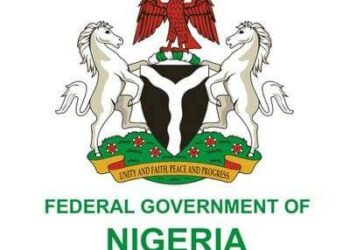The Transportation sector whether road, rail or air is critical to the success or failure of any business. In this piece, ADEOLA TUKURU writes on the sector and government’s efforts at giving it life.
As Nigeria reaches her Diamond Jubilee, the federal government says it has worked hard to sustain the gains the country has made in the transportation sector by reviving the railway stations in the process making the transportation goods and services easier.
Today, there is no doubt that the Minister of Transportation, Mr Rotimi Amaechi’s zeal to revolutionize the transport sector has been seen in the country.
Aims of the Ministry of Transportation
The Ministry of Transportation has struggled to meet it aims particularly in the railway sub sector which is about the movement of goods and services as well as people from one part of the country to another in a most acceptable manner.
Plans are underway to increase the frequency of train services and the number of the trains to ensure constant operations across the country.
The Minister of Transportation, Hon Rotimi Amaechi who affirmed this stated that with the priority attached to the provision of railway infrastructure by Mr. President and in readiness to complete the project.
He explained that the Federal Government in August, 2017 approved the contract for the reconstruction of the 54 Kilometer of the Itakpe Ajaokuta section of the rail line, construction of 12 ultra modern station buildings as well as intermodal bus terminal in Itakpe Station was awarded to Messrs CCECC Nigeria Limited.
He further added that the construction of siding tracks to service the buildings in the Ancillary Yard including locomotive workshop, Rolling stock depot, maintenance workshop, fueling depot, goods platform in this facility yard was awarded to the contractor.
He also said the government also approved the completion of other structures including admin block, communication towers, medical bay, quarters for workers.,within this railway ancillary facilities yard to Messrs. Julius Berger Nigeria Plc.
Commission of Itakpe / Ajaokuta railway
Parts of the railway achievement was the commissioning for Commercial Operation of the itakpe Ajaokuta Ward Rail Line and the Railway Ancillary Facility Yard to be performed by the President and Commander in Chief of the Armed Forces, President Muhammadu Buhari, GCFR.
The minister explained that in 1987 during the Military era but underwent protracted hiccups and prolonged abandonment which attest to more than 3 decades of investment, hope and despair.
He said the project, with a passion to realize for Nigeria, an effective and effcient transportation especially, the railways, was resuscitated by this administration For this feat, we have to appreciate the unrelenting and concerted attention of the President.
Historically, the project conceived 33 years ago, started with the linkage of Itakpe Iron Ore Mines with Ajaokuta jail it a Steel Mill and extended 0 Aladja, Ward in the South-South zone of the Country by the contract warded in 1991 for the extension. The project Suffered a lot of setbacks
The project was however transferred from Federal Ministry of Mines and Power in June 1996 as a result of Government decision to transform the Itakpe Ajaokuta -Warri Railway to the Nigeria Railway Central line and assigned to it multifunctional role to provide freight movement services to industries in the corridor including agricultural, manufacturing and mining as well as cover passenger services.
He said his Ministry is working in line with Mr. President’s directives regarding the prioritized railway lines and concluding negotiation to realize the extension of the rail line to Warri port and Northward to Abuja and also working on other new lines connecting our State Capitals including our commercial and administrative centers.
On rail wagon assembly plant
Late last year, the Vice President Prof Yemi Osinbajo unveiled a rail wagon assembly plant at Kajola in Ogun state.
The Vice President at the official ground breaking ceremony said the plant, which is a private investment to be undertaken by Messers CCECC, is central in the production of rolling stock needed for the railway modernization program being implemented by the administration.
He explained that wagon plant will link the rail lines to the country’s ports. “When completed, it is expected that the plant would produce some parts of the wagons for the Lagos – Ibadan and Abuja – Kaduna rail lines, but also for the central rail lines and to satisfy the needs of other rail operators within the West- African sub-region.
“Secondly, the citing of the plant here in Nigeria and the commitment to hiring Nigerians and Nigerian businesses affirms the Presidents directives in Executive Order 5 on prioritizing Nigerians and Nigerian businesses in the innovation, production and procurement of Engineering projects and services.
“The plant would offer an important platform for engineers, technicians, artisans and other professionals to gain the specialized skills required for the production and maintenance of rolling stock.
“This will invariably conduce to spin-off businesses in the region of operation and across the country wherever rail networks are in existence.
Plans to generate direct, indirect jobs
“The plant is expected to generate about five thousand (5,000) direct and indirect jobs,” he said.
The Minister said the project is a direct investment of Messrs. CCECC Nig. Ltd in the country and would remain as part of gains from the contract signed for the supply of rolling stock.
He said it will be the first of its kind in Nigeria adding that as the first batch of the wagons to be assembled from the production line of the plant, it will form part of the rolling stock for Lagos – Ibadan and Abuja -Kaduna railway operations.
“More so, we would be able to conserve our much needed foreign exchange which can be deployed to other areas of development.
“Among all these, it is cardinal to mention that the sustainability of our railway modernization projects would depend on our ability to develop local capacity to construct, maintain and manage our new railway system.
“It is on this note that we feel that this project is germane to the railway development in Nigeria and that Messrs.CCECC should be given every reasonable support to actualize this investment,” he said.
Future efforts to revolutionize sector
The prioritized upcoming railways projects include Lagos to Calabar Coastal Railway line, Kano to Dayi to Kastina to Maradi and Railway Industrial Park in Port Harcourt among others.
The importance of railway infrastructure to economic development cannot be overemphasized. It is considered an essential feature of all modern economies.
Aside from the modern economies, Railway also have an important role in increasing production, reducing travel times, most especially for cargoes, and increasing employment and accessibility.




